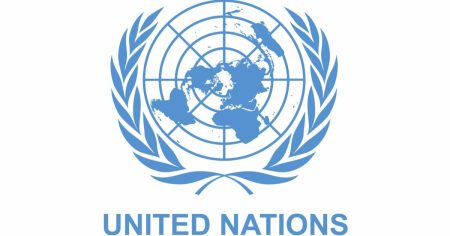The recent triumph of the Nigerian Super Falcons at the 2024 Women’s Africa Cup of Nations has ignited a crucial conversation about the state of women’s football, particularly at the grassroots level. Jenny Anusiem, the founder of Imo Angels Football Club and a prominent advocate for social impact, has issued a fervent call to action, urging stakeholders in Imo State to invest strategically in the development of young female football talent. Anusiem’s appeal highlights the stark reality that while Nigerian women continue to excel on the global stage, the foundational structures necessary for nurturing future generations of players remain alarmingly underdeveloped. The success of the Super Falcons, with a significant contingent of players hailing from Imo State, underscores the immense potential waiting to be unlocked within the region. However, Anusiem emphasizes that their achievements were realized not because of systemic support, but rather in spite of its absence, a testament to the players’ inherent talent and resilience.
Anusiem argues that the current ad-hoc approach to talent development is unsustainable and jeopardizes the future of women’s football in Imo State. She draws a powerful analogy, comparing unsupported talent to a seed deprived of water, highlighting the critical need for nourishment and structured development to allow potential to flourish. The lack of investment in grassroots programs means that countless young girls with the potential to become future stars are being denied the opportunities they need to hone their skills and reach their full potential. This not only represents a loss for the individual athletes but also deprives the state and the nation of a valuable pool of talent that could contribute to future sporting successes. The current situation, according to Anusiem, resembles celebrating the fruit while neglecting the roots of the tree, a practice that ultimately undermines long-term growth and sustainability.
Furthermore, Anusiem’s appeal underscores the disparity between the global recognition achieved by Nigerian women’s football and the inadequate support provided at the local level. While the Super Falcons are making headlines and inspiring young girls across the country, the grassroots structures in places like Imo State remain weak, leaving aspiring athletes with limited avenues for development. This gap between international success and local neglect represents a missed opportunity to capitalize on the momentum generated by the national team’s achievements. By investing in grassroots programs, Imo State can create a pipeline of talent that will not only strengthen the Super Falcons in years to come but also contribute to the overall growth and professionalization of women’s football in Nigeria.
To address this critical issue, Anusiem calls upon the Imo State Government, private sector leaders, and philanthropists to take decisive action and invest in the future of women’s football. She urges them to move beyond mere celebration of international victories and instead focus on building sustainable grassroots systems that nurture talent from an early age. This includes providing access to quality coaching, proper training facilities, regular competitions, and mentorship programs that empower young girls both on and off the field. These investments are not just about sporting success; they are about empowering young women, providing them with opportunities for personal growth, and creating a more inclusive and equitable sporting landscape.
Anusiem’s vision extends beyond simply producing elite athletes; it encompasses a holistic approach to development that empowers young girls to become well-rounded individuals. By providing access to quality training and mentorship, these programs can instill valuable life skills such as discipline, teamwork, leadership, and resilience, qualities that will benefit them long after their playing days are over. Moreover, investing in women’s football can have a ripple effect throughout the community, promoting gender equality, empowering women, and creating positive role models for future generations.
In conclusion, Anusiem’s impassioned plea serves as a wake-up call for stakeholders in Imo State to recognize the immense potential of women’s football and the urgent need for structured investment at the grassroots level. The success of the Super Falcons, while a source of national pride, should also serve as a reminder of the untapped talent that exists within communities across Nigeria. By heeding Anusiem’s call to action, Imo State can not only contribute to the continued success of the national team but also empower young women, promote gender equality, and build a brighter future for the sport. The time for action is now; the future of women’s football in Imo State, and indeed across Nigeria, depends on it.














